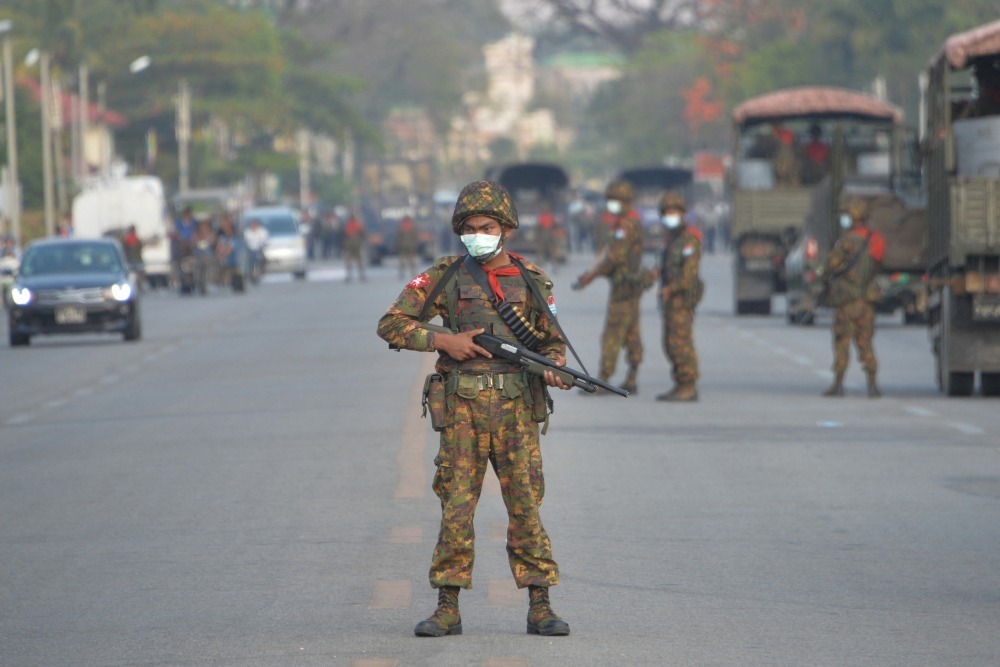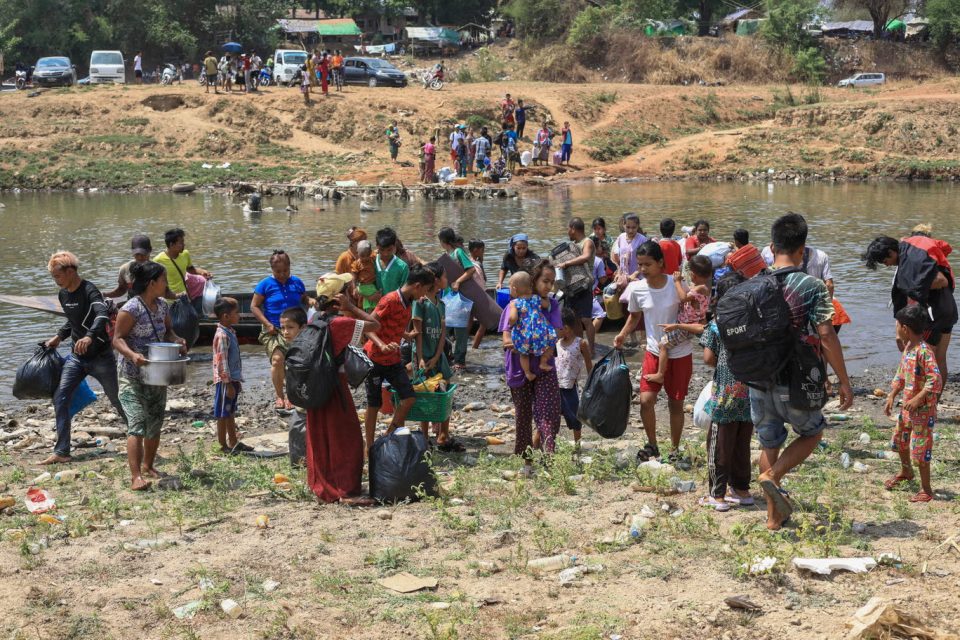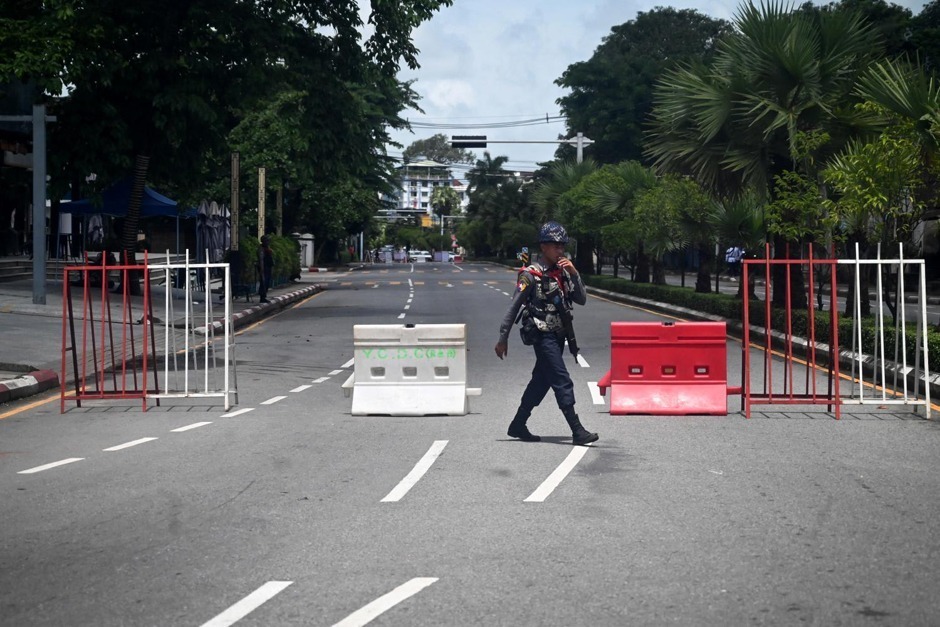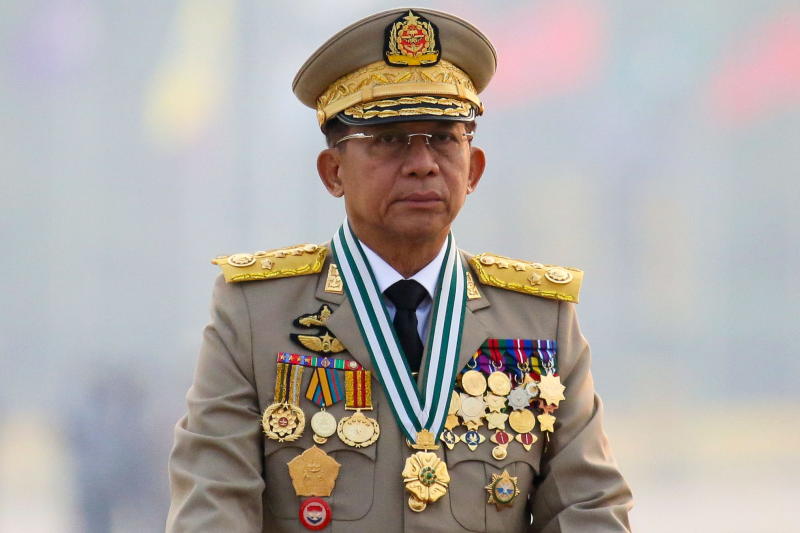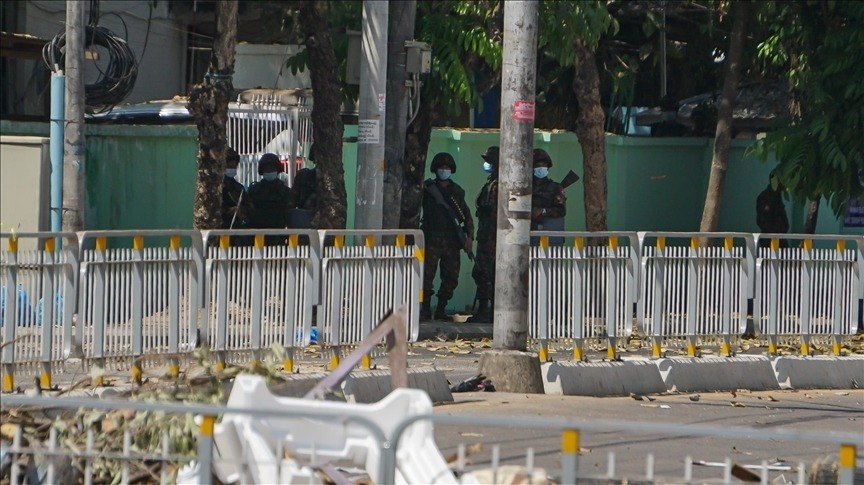
Myanmar’s civil war, now in its fourth year, has strained Phyo Phyo Aung’s family, including her husband Lin Htet Naing, who is in notorious Insein Prison in Yangon. The inmate, who was sentenced to eight years for protesting against the military junta’s takeover, was killed in a bomb blast 16 months ago. Phyo Phyo Aung and her two sons have fled Myanmar, where they receive little news about Ko James’ fate. Despite the ongoing conflict, Phyo Phyo Aung remains hopeful that the military rule will collapse.
The conflict has displaced over 2.6 million people and resulted in at least 4,423 civilian deaths since the coup, nearly doubling the 2,826 deaths during the first two years. Some 459 of the dead were minors, and 159 were under the age of 10. The U.N. High Commissioner for Human Rights, Volker Turk, has warned that Myanmar’s human rights crisis is in “freefall,” citing deteriorating abuses as the military grows desperate amid a series of battlefield defeats.
The Three Brotherhood Alliance, a Shan and Rakhine ethnic coalition, has made significant strides in western and northern Burma, seizing control of over 200 military camps and capturing 15 cities. The success of “Operation 1027,” named for its October 27 start date, presents an existential threat to the military, according to Jason Tower, the Burma country director at the Washington-based U.S. Institute of Peace.
The defeats and large-scale surrenders of hundreds of troops have led the military to lose any legitimacy within the ranks of its own people. The junta has responded with devastating raids on villages, using airstrikes and heavy artillery, resulting in mass displacement and civilian casualties. The military has continued to use arson in raids on villages and towns during its third year in power, torching nearly 79,000 houses across the country. The U.N.’s Turk said that as the military has suffered setbacks on the battlefield, they have launched waves of indiscriminate aerial bombardments and artillery strikes.
The Myanmar junta has increased its response to criticism of its rule, arresting nearly 26,000 people since the 2021 coup, with almost 20,000 still in detention. The OHCHR reports that at least 1,576 people have died in military custody over the past three years. The military regime failed to hold elections in 2023 as planned, and a fifth extension of emergency rule announced Wednesday would postpone the election.
Junta mismanagement has severely impacted the economy, leading to a decline in the kyat value and a significant departure of foreign investors. In April, the junta announced an increase in military spending to 5.6 trillion kyats (US$2.7 billion), more than one-quarter of the 20 trillion kyats (US$9.5 billion) allocated to the overall budget for the 2023-2024 fiscal year. Despite regular power cuts and calls by the junta for the public to save energy and fuel, 2 trillion kyats were allocated for education, 800 billion kyats for health, and around 680 billion kyats for electricity.
U.N. rights czar Turk has urged member states to consider imposing further targeted sanctions on the military to limit access to weapons, jet fuel, and foreign currency. The U.S. Treasury announced sanctions against four individuals and two entities linked to the military regime, while the Australian government imposed additional sanctions on two banks and three firms that supply jet fuel to the junta.
Phyo Phyo Aung, a Burmese activist, believes three years of military rule is too long and vows to continue fighting until the junta is removed from power. She and her husband, Ko James, have been activists since their youth and have faced multiple arrests and imprisonments. They met in 2005 and later became members of the All Burma Federation of Student Unions. After joining the 2007 Saffron Revolution for democracy, they were arrested by the junta in 2007.
In 2015, they were jailed for protesting the National Education Law approved by Thein Sein’s quasi-military government. After the 2021 coup, they were involved in anti-junta protests. In June 2022, authorities arrested Ko James and one of their two sons in Yangon. Phyo Phyo Aung refused to turn herself in, and the child was released a day later. Now hiding in a safe location with her two boys, she needs to keep a low profile for their safety. She is deeply proud of her husband, who is a defender of democracy regardless of the government in power.

